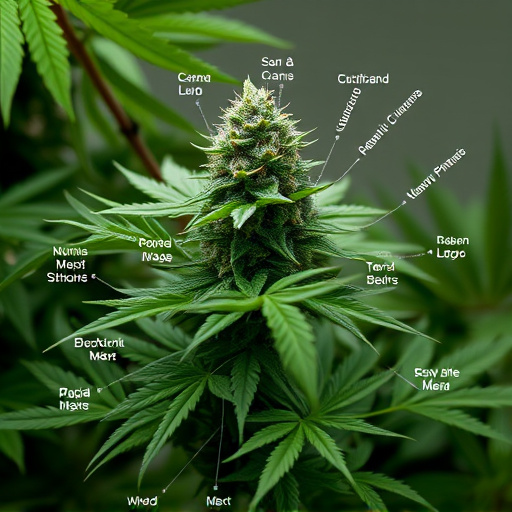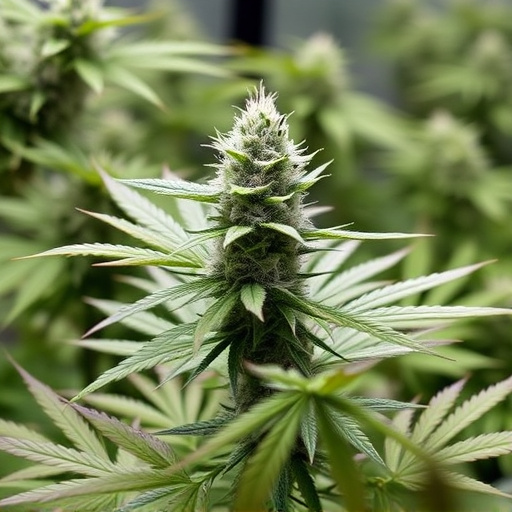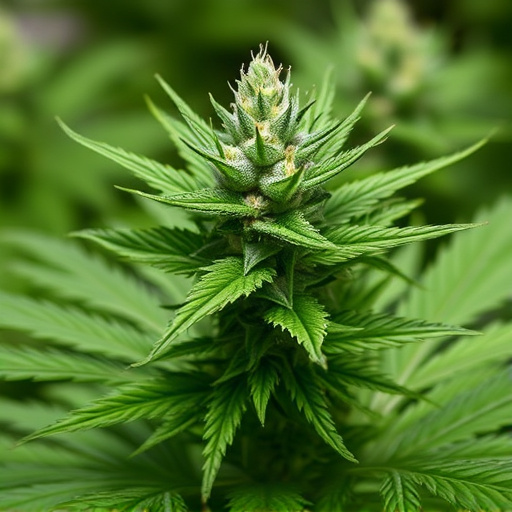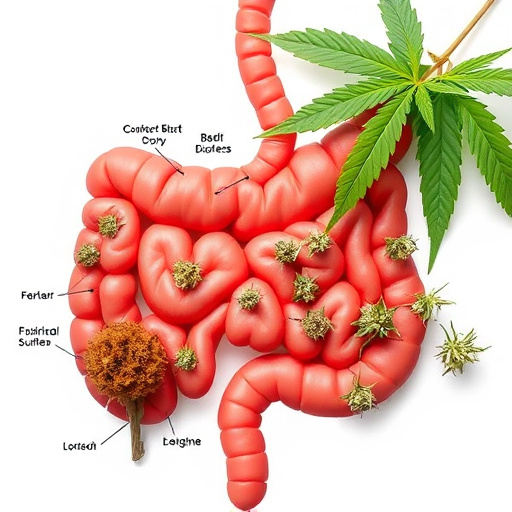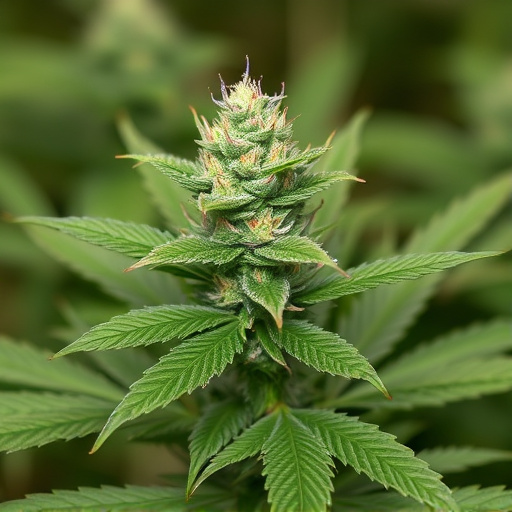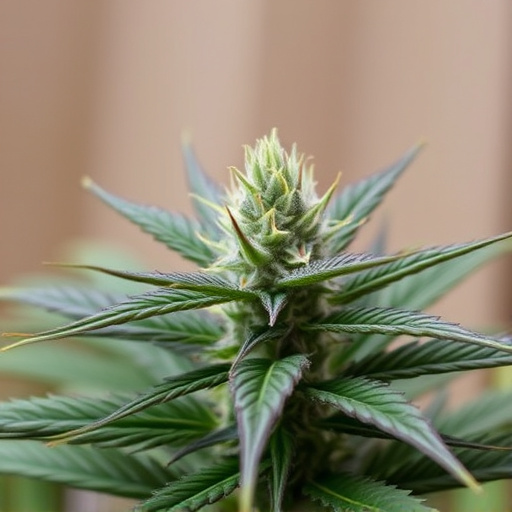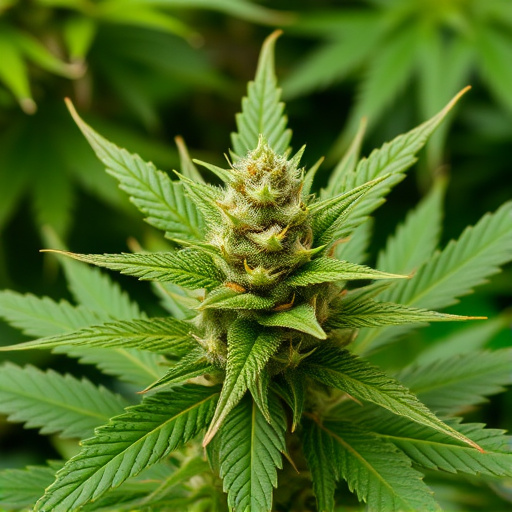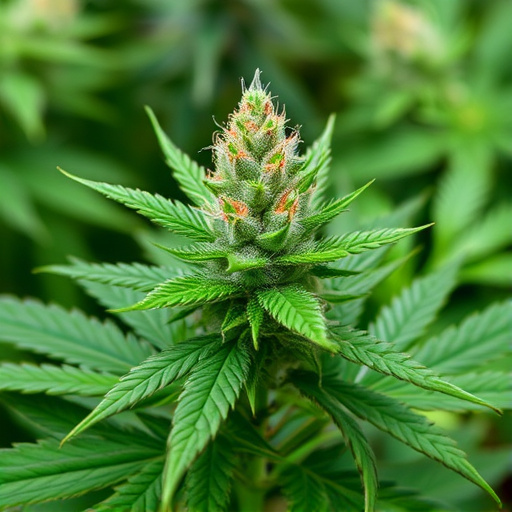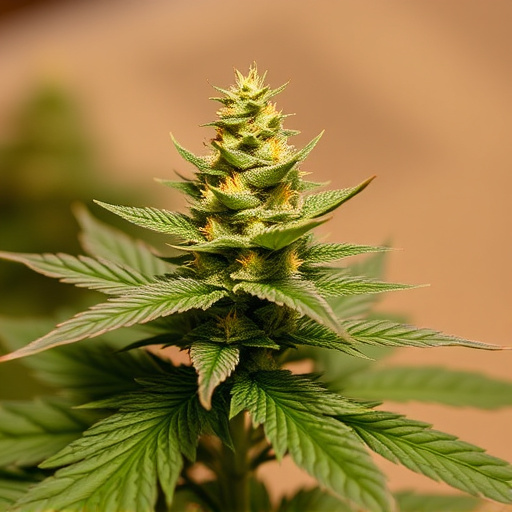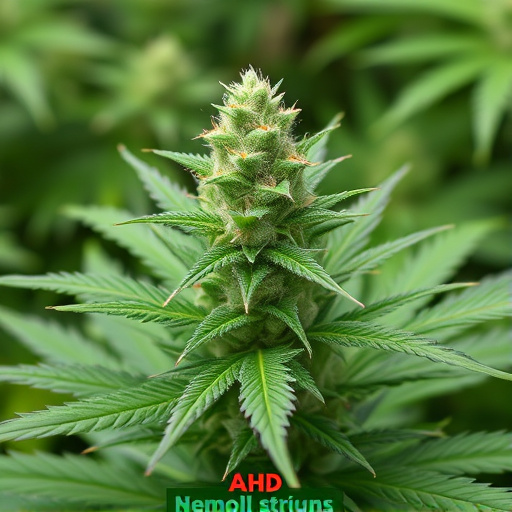Cannabis's "munchies" effect is due to its interaction with the endocannabinoid system, particularly through compounds like THC binding to ECS receptors and triggering neural pathways that increase hunger. This can be beneficial for individuals with ADHD who often struggle with low appetite and weight loss. Strains high in THC and balanced CBD levels show potential as natural treatments for stimulating eating and improving well-being in these cases. For ADHD management, specific cannabis strains can help combat anhedonia, promoting healthy dietary habits and overall symptom balance.
“Ever noticed a sudden craving for snacks after lighting up some cannabis? It’s not just you. Cannabis flower has long been associated with appetite stimulation, a phenomenon driven by its unique cannabinoids. This article delves into the science behind THC and CBD’s impact on hunger, exploring how these compounds interact with our bodies. We’ll also guide you through various cannabis strains known for their potential in managing ADHD symptoms and promoting healthy appetites, offering natural solutions for both conditions.”
- Understanding the Hunger-Inducing Effects of Cannabis
- The Role of Cannabinoids in Appetite Stimulation
- Exploring Cannabis Strains for ADHD and Appetite Management
Understanding the Hunger-Inducing Effects of Cannabis
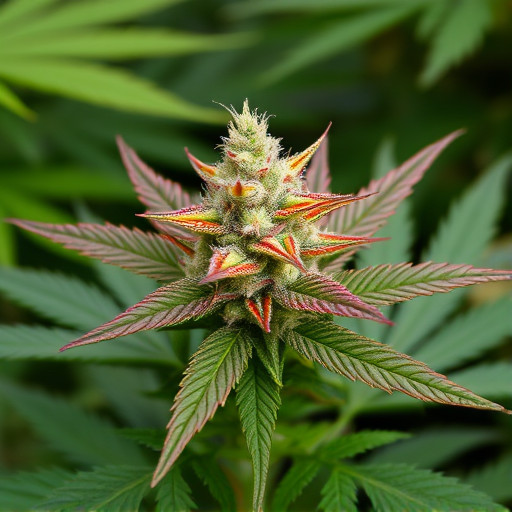
Cannabis’ ability to stimulate appetite is well-documented, especially among users seeking relief from conditions like chronic pain or nausea. The hunger-inducing effect, often referred to as “munchies,” is primarily attributed to the interaction between cannabis compounds and our endocannabinoid system (ECS). This intricate system plays a vital role in regulating various bodily functions, including appetite and metabolism.
When we consume cannabis, compounds like THC (tetrahydrocannabinol) bind to receptors in the ECS. This binding can activate specific neural pathways responsible for triggering feelings of hunger. Interestingly, this effect might be particularly pronounced for individuals with ADHD or other conditions characterized by low appetite. Cannabis strains known for their high THC content and balanced CBD (cannabidiol) levels have been explored as potential treatments for these cases, offering a natural approach to stimulate eating and potentially improve overall well-being.
The Role of Cannabinoids in Appetite Stimulation
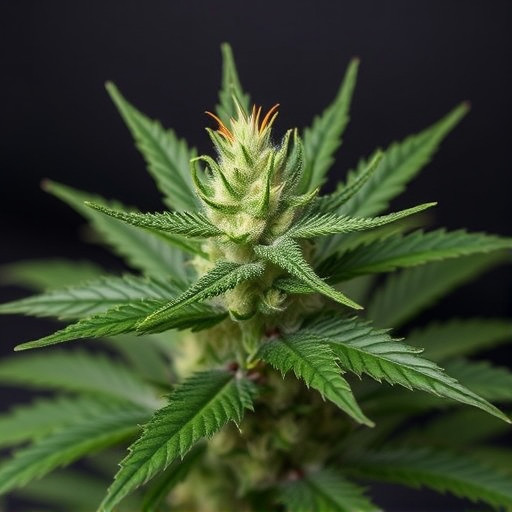
Cannabis flowers contain a complex mix of chemicals, including cannabinoids like THC and CBD. These compounds interact with our bodies’ endocannabinoid system (ECS), which plays a vital role in regulating various physiological processes, including appetite. When cannabis strains for ADHD or other conditions are consumed, these cannabinoids bind to receptors in the brain and nerve cells, triggering a cascade of effects. One significant outcome is increased hunger or elevated appetite, often referred to as “the munchies.”
This stimulation of the ECS can lead to changes in hormones that influence hunger, such as ghrelin, which signals the brain to stimulate appetite. As a result, individuals may experience a strong desire to eat, sometimes leading to increased food intake. Understanding this interaction between cannabinoids and the ECS provides valuable insights into why cannabis can have such a potent effect on appetite and offers potential therapeutic benefits for conditions like ADHD where appetite regulation is a concern.
Exploring Cannabis Strains for ADHD and Appetite Management
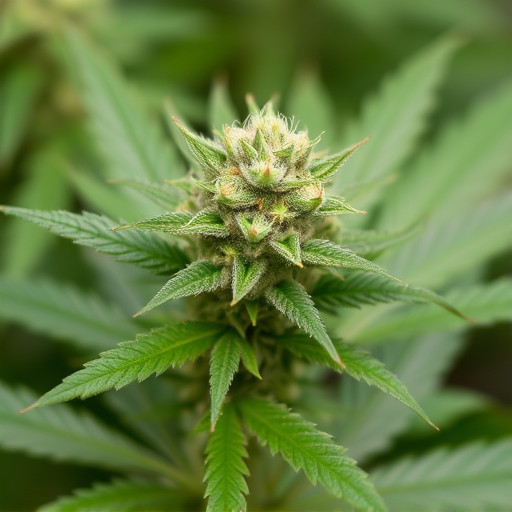
For individuals dealing with Attention Deficit Hyperactivity Disorder (ADHD), managing symptoms can be a complex task. One unexpected ally in this quest for balance could be cannabis strains specifically designed to target appetite and focus. Cannabis has long been recognized for its ability to stimulate appetite, making it potentially beneficial for those with ADHD who often experience anhedonia—the inability to feel pleasure—and subsequent weight loss.
Exploring particular cannabis strains known for their high THC content (tetrahydrocannabinol) and low CBD (cannabidiol) levels can be a strategic approach to managing hunger pangs. These strains typically enhance appetite, making them useful in counteracting the effects of ADHD symptoms that may lead to overeating or difficulty maintaining a healthy diet. By carefully selecting the right cannabis strains for ADHD management, individuals can find a natural way to support their appetites and overall well-being.
Cannabis’ ability to stimulate appetite is well-documented, particularly its effect on individuals with conditions like ADHD. By understanding the role of cannabinoids in hunger promotion, we can explore specific cannabis strains that may aid in managing both ADHD symptoms and appetite-related issues. This approach offers a natural alternative for those seeking to enhance their quality of life, especially when traditional methods prove insufficient. Research in this area continues to grow, promising new insights into how cannabis can be tailored to individual needs, specifically focusing on cannabis strains for ADHD management.

